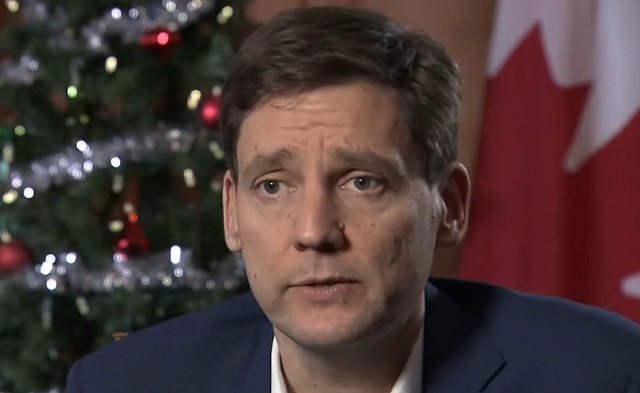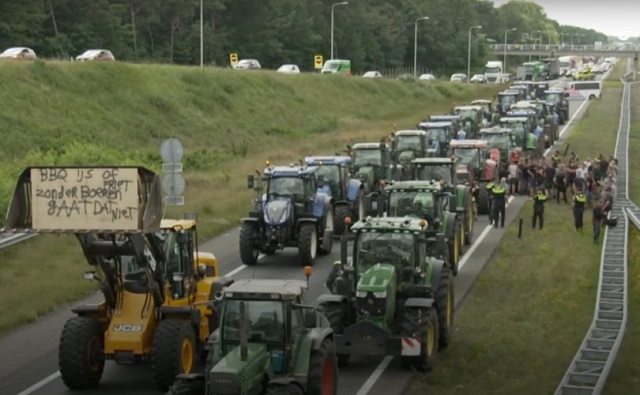Crime
Part of haul from 2019 German museum jewelry heist recovered

BERLIN (AP) — German authorities said Saturday that they have recovered a significant part of the 18th-century treasures stolen from Dresden’s Green Vault museum in a spectacular break-inmore than three years ago.
Prosecutors and police said in a statement that they secured 31 items in Berlin overnight, including “several pieces that appear to be complete.” They were taken to Dresden, more than 160 kilometers (100 miles) away, where police and then officials from the authority that oversees the city’s art collections plan to check their authenticity and examine whether they are intact.
Some prominent items are still missing, authorities said.
Saturday’s statement gave no details of where exactly the items were found and in what circumstances.
But they said that the find was preceded by exploratory talks between prosecutors and the defense in an ongoing trial over the theft on a possible agreement that would include the return of stolen items. They added that they can give no further information ahead of the next trial session scheduled for Tuesday.
Six men went on trial in Dresden in January, accused of gang robbery and arson over the Nov. 25, 2019, robbery. The German nationals were accused of stealing jewelry with a total insured value of at least 113.8 million euros ($121 million).
Officials said at the time that the items taken included a large diamond brooch and a diamond epaulette. The treasury of Augustus the Strong of Saxony was established in 1723 and contains around 4,000 objects of gold, precious stones and other materials on display in Dresden’s Royal Palace.
Prosecutors have said that the suspects laid a fire just before the break-in to cut the power supply for street lights outside the museum, and also set fire to a car in a nearby garage before fleeing to Berlin.
Saxony’s regional culture minister, Barbara Klepsch, said officials are waiting to see experts’ assessment and discover what condition the recovered pieces are in.
“I remain hopeful that the wound opened in the historic Green Vault in the 2019 robbery will soon be closed,” Klepsch said in a statement. “This shows that, even three years after this painful break-in, it is worth not giving up hope and pursuing all tracks that arise.”
Addictions
Why can’t we just say no?

From the Frontier Centre for Public Policy
Drug use and violence have become common place in hospitals. Drug-addicted patients openly smoke meth and fentanyl, and inject heroin. Dealers traffic illicit drugs. Nurses are harassed, forced to work amidst the toxic fumes from drugs and can’t confiscate weapons. In short, according to one nurse, “We’ve absolutely lost control.”
“Defining deviancy down” is a cultural philosophy that emerged in the United States during the 1990s.
It refers to society’s tendency to adjust its standards of deviancy “down,” so that behaviours which were once unacceptable become acceptable. Over time, this newly- acceptable behaviour can even become society’s norm.
Of course, the converse must also be true — society looks down on those who label social behaviours “wrong,” deeming them moralistic, judgemental or simply out of touch with the realities of modern life.
Thirty years later, this philosophy is entrenched in British Columbia politics and policies. The province has become a society that cannot say “no” to harmful or wrong behaviours related to drug use. It doesn’t matter if you view drug use as a medical issue, a law-and-order issue, or both – we have lost the ability to simply say “no” to harmful or wrong behaviour.
That much has become abundantly clear over the past two weeks as evidence mounts that BC’s experiment with decriminalization and safe supply of hard drugs is only making things worse.
A recently-leaked memo from BC’s Northern Health Authority shows the deleterious impact these measures have had on BC’s hospitals.
The memo instructs staff at the region’s hospitals to tolerate and not intervene with illegal drug use by patients. Apparently, staff should not be taking away any drugs or personal items like a knife or other weapons under four inches long. Staff cannot restrict visitors even if they are openly bringing illicit drugs into the hospital and conducting their drug transactions in the hallways.
The public was quite rightly outraged at the news and BC’s Health Minister Adrian Dix quickly attempted to contain the mess by saying that the memo was outdated and poorly worded.
But his facile excuses were quickly exposed by publication of the very clearly worded memo and by nurses from across the province who came forward to tell their stories of what is really happening in our hospitals.
The President of the BC Nurses Union, Adriane Gear, said the issue was “widespread” and “of significant magnitude.” She commented that the problems in hospitals spiked once the province decriminalized drugs. In a telling quote, she said, “Before there would be behaviours that just wouldn’t be tolerated, whereas now, because of decriminalization, it is being tolerated.”
Other nurses said the problem wasn’t limited to the Northern Health Authority. They came forward (both anonymously and openly) to say that drug use and violence have become common place in hospitals. Drug-addicted patients openly smoke meth and fentanyl, and inject heroin. Dealers traffic illicit drugs. Nurses are harassed, forced to work amidst the toxic fumes from drugs and can’t confiscate weapons. In short, according to one nurse, “We’ve absolutely lost control.”
People think that drug policies have no impact on those outside of drug circles – but what about those who have to share a room with a drug-smoking patient?
No wonder healthcare workers are demoralized and leaving in droves. Maybe it isn’t just related to the chaos of Covid.
The shibboleth of decriminalization faced further damage when Fiona Wilson, the deputy chief of Vancouver’s Police Department, testified before a federal Parliamentary committee to say that the policy has been a failure. There have been more negative impacts than positive, and no decreases in overdose deaths or the overdose rate. (If such data emerged from any other healthcare experiment, it would immediately be shut down).
Wison also confirmed that safe supply drugs are being re-directed to illegal markets and now account for 50% of safe supply drugs that are seized. Her words echoed those of BC’s nurses when she told the committee that the police, “have absolutely no authority to address the problem of drug use.”
Once Premier David Eby and Health Minister Adrian Dix stopped denying that drug use was occurring in hospitals, they continued their laissez-faire approach to illegal drugs with a plan to create “safe consumption sites” at hospitals. When that lacked public appeal, Mr. Dix said the province would establish a task force to study the issue.
What exactly needs to be studied?
The NDP government appears to be uninformed, at best, and dishonest, at worst. It has backed itself into a corner and is now taking frantic and even ludicrous steps to legitimize its experimental policy of decriminalization. The realities that show it is not working and is creating harm towards others and toward institutions that should be a haven for healing.
How quickly we have become a society that lacks the moral will – and the moral credibility – to just to say “no.”
Susan Martinuk is a Senior Fellow with the Frontier Centre for Public Policy and author of Patients at Risk: Exposing Canada’s Health-care Crisis.
Addictions
British Columbia to re-criminalize hard drug use in public after massive policy failure

From LifeSiteNews
British Columbia premier David Eby announced that his province plans to re-criminalize hard drug use in public spaces after its decriminalization last year led to widespread social disorder.
British Columbia is asking the Trudeau government to roll back its drug decriminalization program after increased violence and continued overdoses.
On April 26, New Democratic Party (NDP) premier of British Columbia David Eby announced that he is working with Prime Minster Justin Trudeau’s federal government to re-criminalize drug use in public spaces, including inside hospitals, on transit, and in parks. British Columbia, under permission from the Trudeau government, had decriminalized such behavior in 2023.
“Keeping people safe is our highest priority,” Eby explained in a press release. “While we are caring and compassionate for those struggling with addiction, we do not accept street disorder that makes communities feel unsafe.”
“We’re taking action to make sure police have the tools they need to ensure safe and comfortable communities for everyone as we expand treatment options so people can stay alive and get better,” he continued.
Under the new regulations, police would be given the power to prevent drug use in all public places, including hospitals, restaurants, transit, parks and beaches.
However, drug use would remain legal at “a private residence or place where someone is legally sheltering, or at overdose prevention sites and drug checking locations.”
Eby’s concerns over drug use were echoed by Minister of Public Safety and Solicitor General Mike Farnworth who said, “Our communities are facing big challenges. People are dying from deadly street drugs, and we see the issues with public use and disorder on our streets.”
“As we continue to go after the gangs and organized criminals who are making and trafficking toxic drugs, we’re taking action now to make it illegal to use drugs in public spaces, and to expand access to treatment to help people who need it most,” he promised.
Beginning in early 2023, Trudeau’s federal policy, in effect, decriminalized hard drugs on a trial-run basis in British Columbia.
Under the policy, the federal government began allowing people within the province to possess up to 2.5 grams of hard drugs without criminal penalty, but selling drugs remained a crime.
While British Columbia has not yet indicated it plans to re-criminalize possession, its decision to clamp down on public drug use presents a major departure from its previous tactics of continually liberalizing its attitude toward narcotic use.
Since being implemented, the province’s drug policy has been widely criticized, especially after it was found that the province broke three different drug-related overdose records in the first month the new law was in effect.
The effects of decriminalizing hard drugs in various parts of Canada has been exposed in Aaron Gunn’s recent documentary, Canada is Dying, and in U.K. Telegraph journalist Steven Edginton’s mini-documentary, Canada’s Woke Nightmare: A Warning to the West.
Gunn says he documents the “general societal chaos and explosion of drug use in every major Canadian city.”
“Overdose deaths are up 1,000 percent in the last 10 years,” he said in his film, adding that “[e]very day in Vancouver four people are randomly attacked.”
-

 Business10 hours ago
Business10 hours agoUN plastics plans are unscientific and unrealistic
-

 Brownstone Institute13 hours ago
Brownstone Institute13 hours agoThe Teams Are Set for World War III
-

 Education7 hours ago
Education7 hours agoSupport a young reader through the Tim Hortons Smile Cookie campaign
-

 Opinion11 hours ago
Opinion11 hours agoThe Climate-Alarmist Movement Has A Big PR Problem On Its Hands
-

 Addictions12 hours ago
Addictions12 hours agoWhy can’t we just say no?
-

 Opinion2 days ago
Opinion2 days agoClimate Murder? Media Picks Up Novel Legal Theory Suggesting Big Oil Is Homicidal
-

 Energy1 day ago
Energy1 day agoNet Zero’s days are numbered? Why Europeans are souring on the climate agenda
-

 Economy2 days ago
Economy2 days agoOttawa’s homebuilding plans might discourage much-needed business investment



